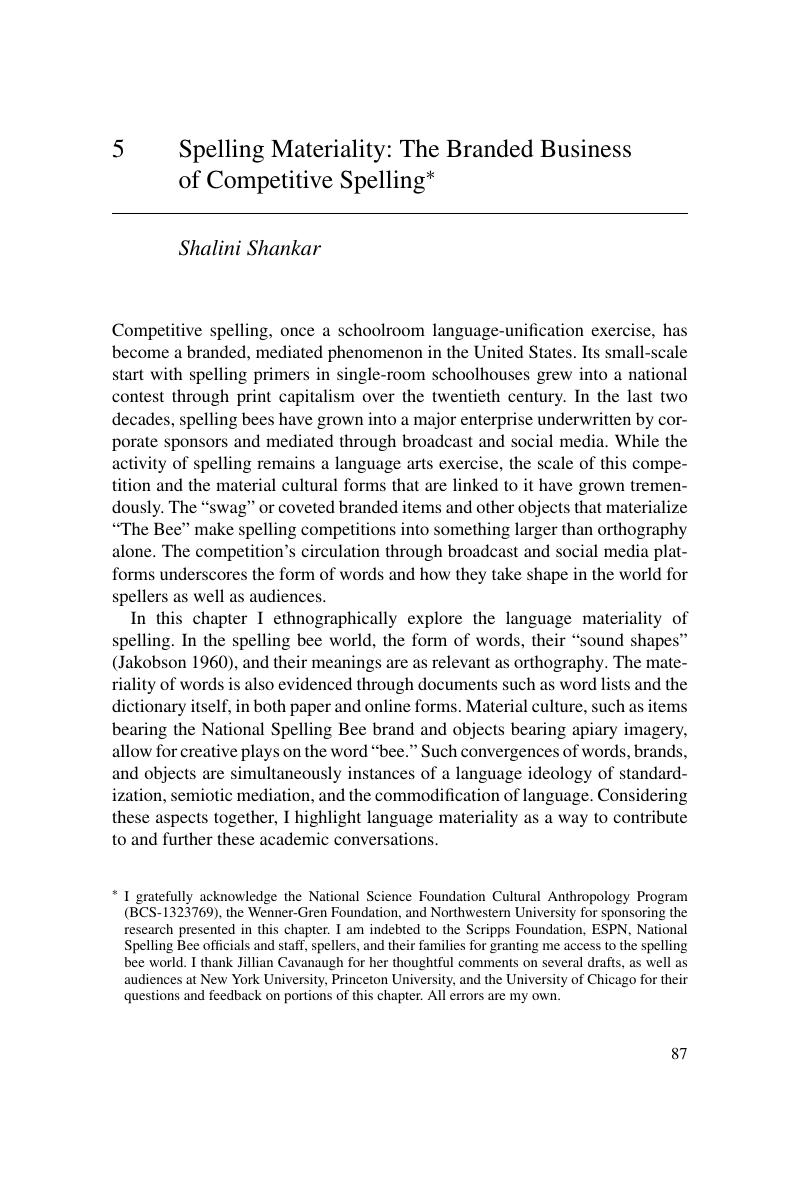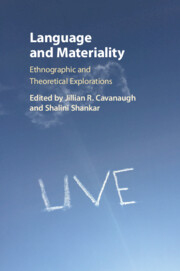Book contents
- Language and Materiality
- Language and Materiality
- Copyright page
- Contents
- Images
- Tables
- Contributors
- Acknowledgements
- 1 Toward a Theory of Language Materiality: An Introduction
- 2 Curated Conversation: “Materiality: It's the Stuff!”
- Part I Texts, Objects, Mediality
- 3 Japan's Trendy Word Grand Prix and Kanji of the Year: Commodified Language Forms in Multiple Contexts
- 4 Fontroversy! Or, How to Care about the Shape of Language
- 5 Spelling Materiality: The Branded Business of Competitive Spelling
- Part II Transformation, Aesthetics, Embodiment
- Part III Time, Place, Circulation
- Part IV More Stuff: Short Topical Commentaries on Language and Materiality and Afterword
- Index
- References
5 - Spelling Materiality: The Branded Business of Competitive Spelling
from Part I - Texts, Objects, Mediality
Published online by Cambridge University Press: 06 October 2017
- Language and Materiality
- Language and Materiality
- Copyright page
- Contents
- Images
- Tables
- Contributors
- Acknowledgements
- 1 Toward a Theory of Language Materiality: An Introduction
- 2 Curated Conversation: “Materiality: It's the Stuff!”
- Part I Texts, Objects, Mediality
- 3 Japan's Trendy Word Grand Prix and Kanji of the Year: Commodified Language Forms in Multiple Contexts
- 4 Fontroversy! Or, How to Care about the Shape of Language
- 5 Spelling Materiality: The Branded Business of Competitive Spelling
- Part II Transformation, Aesthetics, Embodiment
- Part III Time, Place, Circulation
- Part IV More Stuff: Short Topical Commentaries on Language and Materiality and Afterword
- Index
- References
Summary

- Type
- Chapter
- Information
- Language and MaterialityEthnographic and Theoretical Explorations, pp. 87 - 102Publisher: Cambridge University PressPrint publication year: 2017
References
- 1
- Cited by



